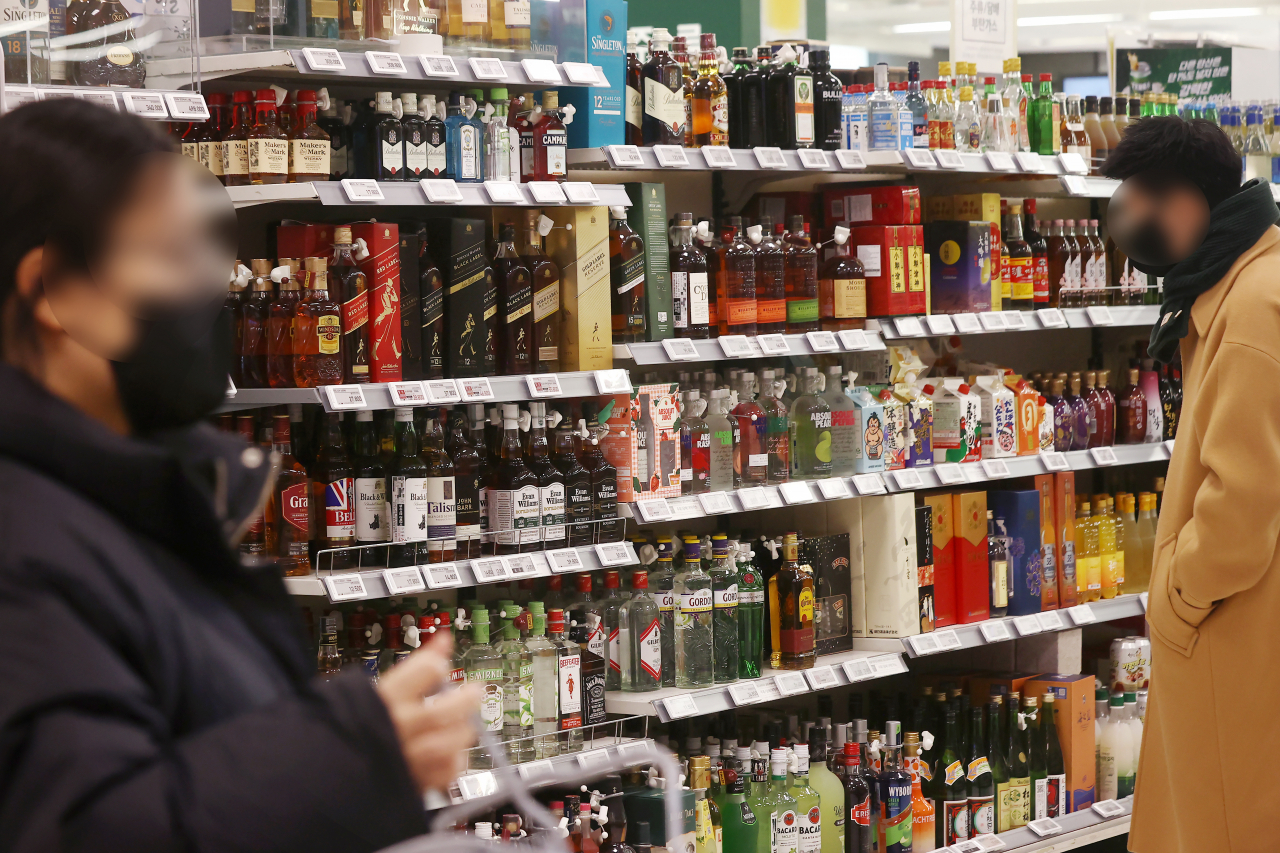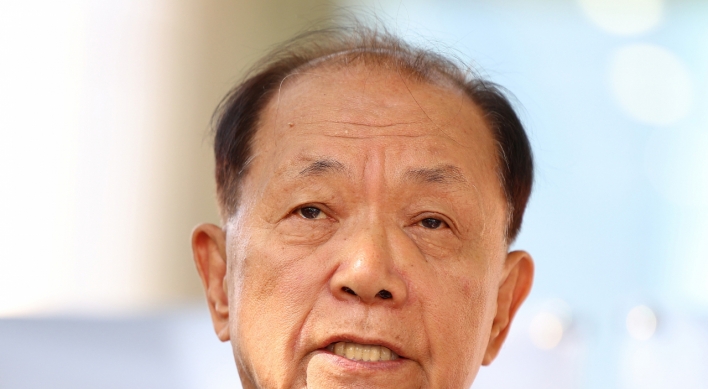[KH Explains] Why are whiskey prices so high in Korea?
Hefty liquor taxes, cheap soju keep whiskey prices high despite soaring demand
By Shim Woo-hyunPublished : Dec. 27, 2022 - 15:49

Whiskey in South Korea is notoriously expensive. Prices may have fallen slightly over the decades, but whiskey is still considered to be pricey here.
For example, the retail price of Jack Daniels Whiskey in a 750-milliliter bottle on Amazon in the US is $24.99, whereas the same whiskey is priced at 60,000 won, or around $47, on SSG.com, an e-commerce platform owned by retail giant Shinsegae Group.
There could be many variables to decide the retail prices of distilled spirits. Price policies are different among countries, and freight rates are also influenced by the shipment volume of orders. Retail margins and logistics costs are important factors as well.
Yet, in Korea, taxes that come along with imported distilled spirits still appear to be the major reason behind the high prices.
A total of 155 percent in taxes are imposed on all imported distilled spirits here, including a 20 percent tariff, 72 percent ad valorem tax, 30 percent education tax and 10 percent value-added tax, among others.
The issue is the largest 72 percent ad valorem tax that is imposed based on the retail price, not the alcohol volume, a system that has been maintained for almost 50 years.
While a 700-ml bottle of 15-year-old Glenfiddich Single Malt Scotch Whisky sells for 37 British pounds ($45) on UK’s Trolley, the same product sells for 150,000 won, about 95 pounds, on SSG.com.
If a higher-end whiskey comes with a fancy bottle and packaging, the price of the whiskey can go up further because the tax is applied to its final factory price. Because of this, many whiskeys are sold without boxes at local retail shops.
The taxation system has also widened the price gap in whiskey between South Korea and Japan.
In 1986, Japan abolished the ad valorem tax as part of the overall reform of its tax system. But Korea has maintained the scheme even though the rate has been relieved.
Before 1991, the Korean government imposed a total 280 percent tax on distilled spirits, which included a 200 percent liquor tax, a 30 percent national defense tax and a 10 percent education tax.
The liquor tax was reduced to 100 percent in 1996 and to the current 72 percent in 2000.
For years, whiskey importers and makers have called for a revision to the law. But the efforts were quashed due to backlash from the local soju industry. Currently, beer and makgeolli -- Korean rice wine -- are the only hard drinks levied with alcohol volume-based taxes here.
“There has been strong resistance from the soju industry for many years whenever related discussions surface,” an industry source said on condition of anonymity.
The source explained that soju is categorized as a distilled spirit, along with imported whiskey. But soju products come with cheaper price tags due to their cheap factory prices, giving them a competitive edge in the market.
However, a taxation system based on alcohol volume would mean a higher rate applied to soju, one of the country's most widely consumed alcoholic beverages, forcing manufacturers of Korea's signature liquor to increase prices and cutting into their competitiveness advantage.
Yoon Sun-yong, secretary-general of the Korea Wines & Spirits Importers Association, said the adoption of specific excise taxes would help lower costs for high-priced whiskeys whose sales are soaring recently amid a changing drinking culture of drinking less but better.
“Specific excise taxes would greatly improve the accessibility of high-end whiskeys for Korean drinkers,” he said.
Despite expectations within the industry, any change in the taxation system appears to be difficult to realize, at least in the near future.
In May 2020, the Ministry of Economy and Finance officially announced that it would be difficult to change the taxation system for distilled spirits as it would cause either an increase in taxes on soju or decrease in taxes imposed on imported whiskey. The ministry then added, in both circumstances, it is “not desirable from the perspective of the national interest.”
Before 2000, the liquor tax rate levied on soju products was 35 percent. But, the government had to increase the rate for the same rate to be applied to soju and other distilled products after a World Trade Organization’s ruling.
The government then faced criticisms from the soju industry and the public over the tax rate increase for the country’s most popular distilled spirit.
In the meantime, whiskey imports have surged during the pandemic years, largely driven by young drinkers in their 20s and 30s, according to the latest customs data. In the January-October period this year, over $218 million of whiskey was imported here, a 62 percent jump from a year ago.






![[KH Explains] No more 'Michael' at Kakao Games](http://res.heraldm.com/phpwas/restmb_idxmake.php?idx=644&simg=/content/image/2024/04/28/20240428050183_0.jpg&u=20240428180321)











![[Herald Interview] Mistakes turn into blessings in street performance, director says](http://res.heraldm.com/phpwas/restmb_idxmake.php?idx=652&simg=/content/image/2024/04/28/20240428050150_0.jpg&u=20240428174656)
